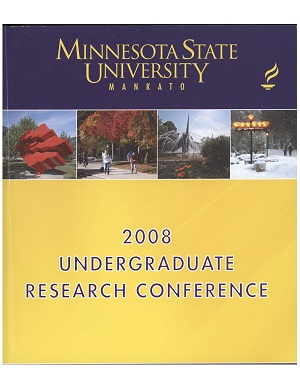Individual Experiences and Subjective Effects of Salvia Divinorum Among Recreational Users
Location
CSU 202
Start Date
22-4-2008 8:30 AM
End Date
22-4-2008 10:30 AM
Student's Major
Psychology
Student's College
Social and Behavioral Sciences
Mentor's Name
Dawn N. Albertson
Mentor's Department
Psychology
Mentor's College
Social and Behavioral Sciences
Description
Salvia Divinorum (Salvia) is a naturally occurring psychedelic and is considered to be the most potent natural hallucinogen found to date (Gonzalez et. al, 2006). The few behavioral studies that have been done posit that Salvia effects may be similar to LSD, which is noteworthy because Salvia acts via a unique molecular mechanism (Gonzalez et. al, 2006). With the exception of Salvia, which works as an agonist at kappa opiate receptors, all classic hallucinogenic drugs including LSD act on serotonin receptors. The purpose of this research was to obtain data on the effects of Salvia from a significant number of participants and compare it to previously published data of LSD users. It was hypothesized that the Salvia effects would be similar to previously documented LSD effects. Approximately two hundred subjects participated in this experiment. Individuals were asked to fill out a general drug use history questionnaire. Those who self-identified as having used Salvia were asked to fill out a second packet consisting of questions regarding their personal experiences with the drug including the Hallucinogen Rating Scale, the State-Trait Anxiety Inventory-S and the Addiction Research Center Inventory (ARCI). Finally, all users and non-users were asked to fill out a third packet consisting of general attitude questions, personality questions and basic, non-identifying demographics. Results will be discussed.
Individual Experiences and Subjective Effects of Salvia Divinorum Among Recreational Users
CSU 202
Salvia Divinorum (Salvia) is a naturally occurring psychedelic and is considered to be the most potent natural hallucinogen found to date (Gonzalez et. al, 2006). The few behavioral studies that have been done posit that Salvia effects may be similar to LSD, which is noteworthy because Salvia acts via a unique molecular mechanism (Gonzalez et. al, 2006). With the exception of Salvia, which works as an agonist at kappa opiate receptors, all classic hallucinogenic drugs including LSD act on serotonin receptors. The purpose of this research was to obtain data on the effects of Salvia from a significant number of participants and compare it to previously published data of LSD users. It was hypothesized that the Salvia effects would be similar to previously documented LSD effects. Approximately two hundred subjects participated in this experiment. Individuals were asked to fill out a general drug use history questionnaire. Those who self-identified as having used Salvia were asked to fill out a second packet consisting of questions regarding their personal experiences with the drug including the Hallucinogen Rating Scale, the State-Trait Anxiety Inventory-S and the Addiction Research Center Inventory (ARCI). Finally, all users and non-users were asked to fill out a third packet consisting of general attitude questions, personality questions and basic, non-identifying demographics. Results will be discussed.
Recommended Citation
Grubbs, Laura E.. "Individual Experiences and Subjective Effects of Salvia Divinorum Among Recreational Users." Undergraduate Research Symposium, Mankato, MN, April 22, 2008.
https://cornerstone.lib.mnsu.edu/urs/2008/oral-session-09/4




